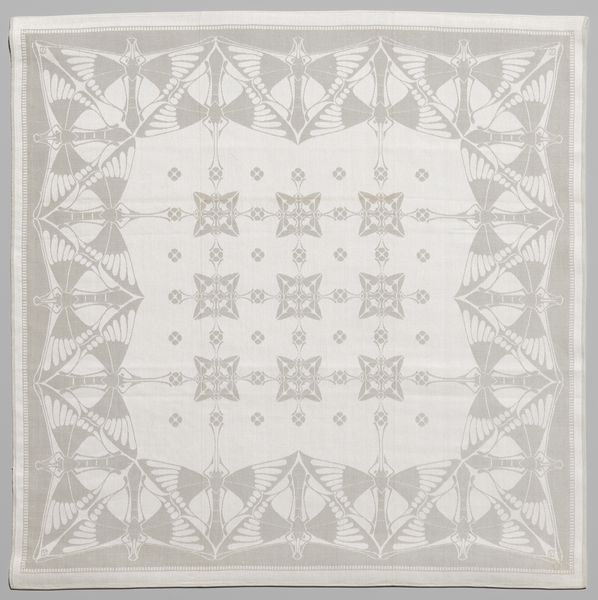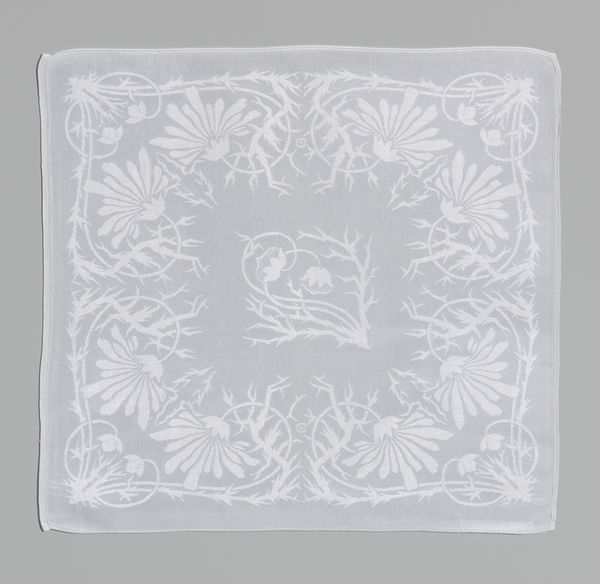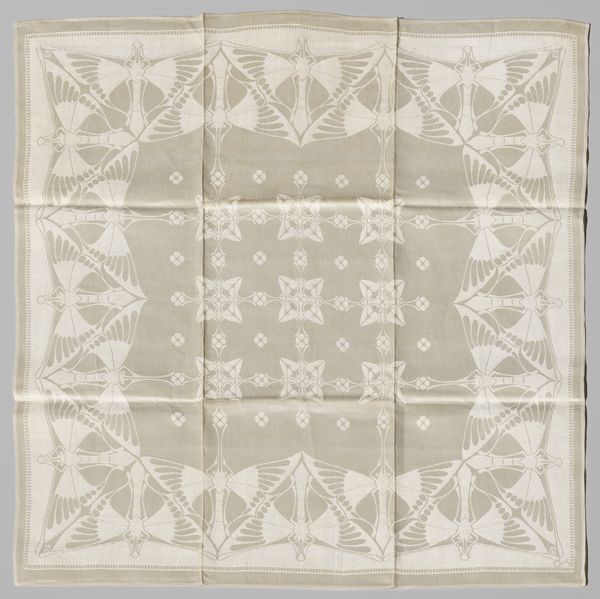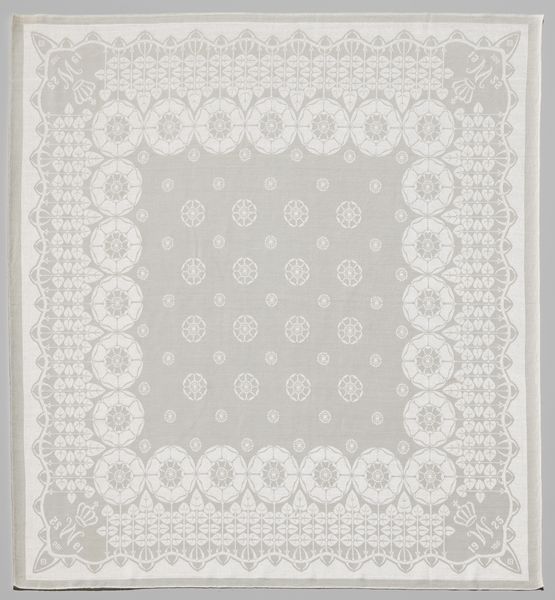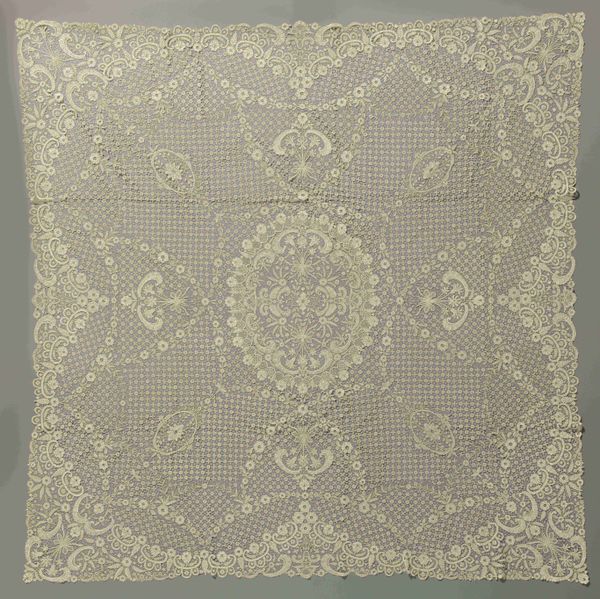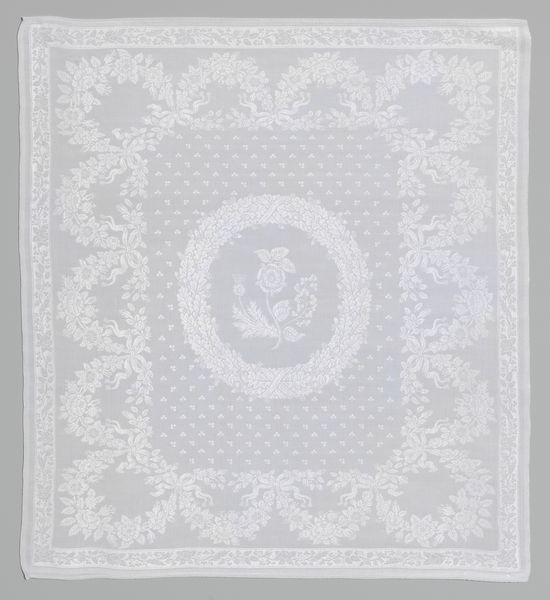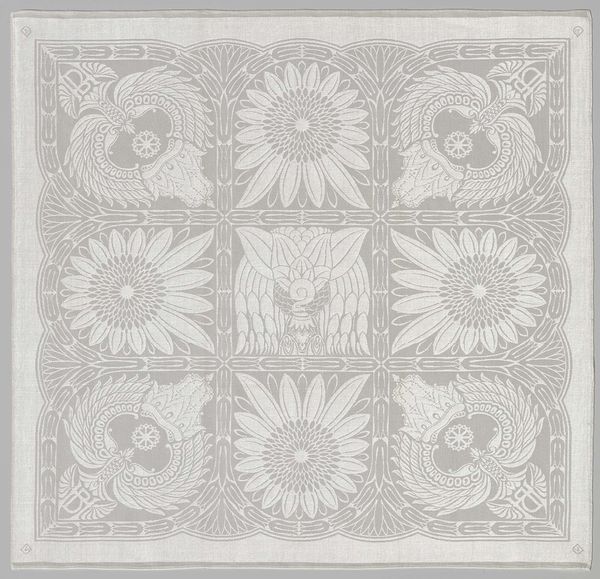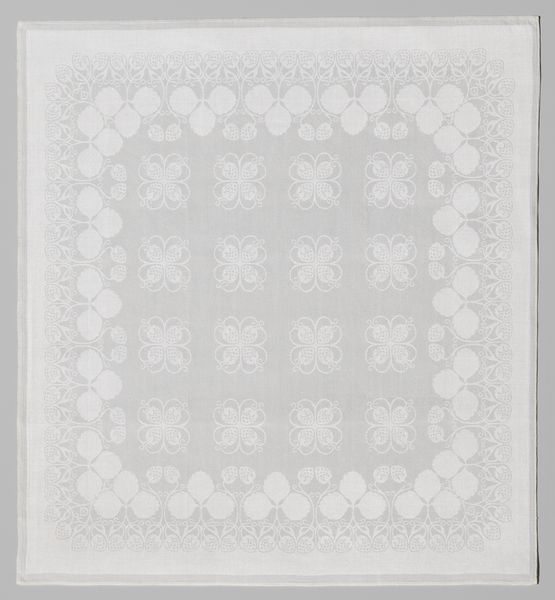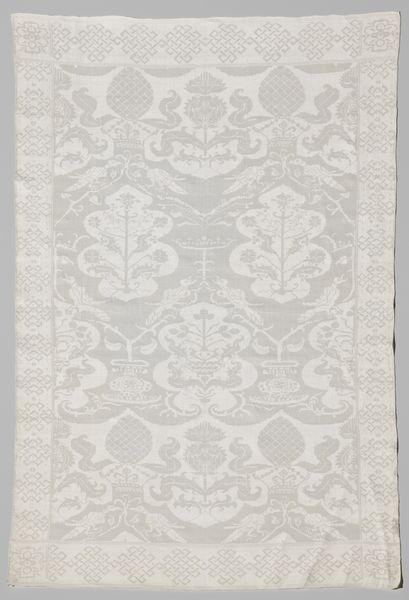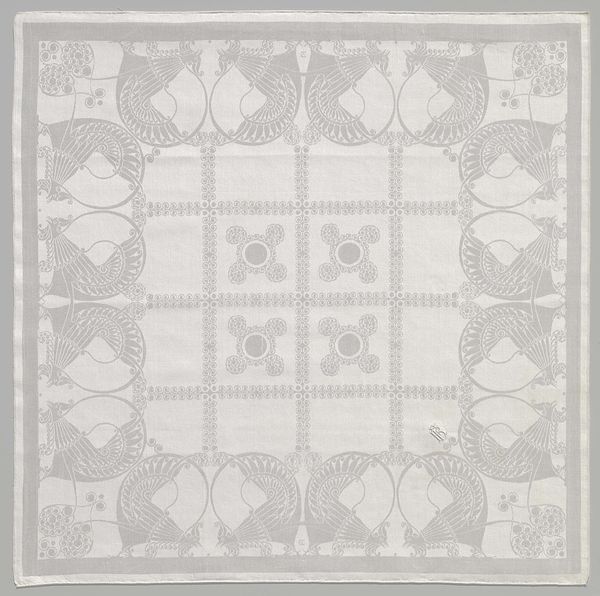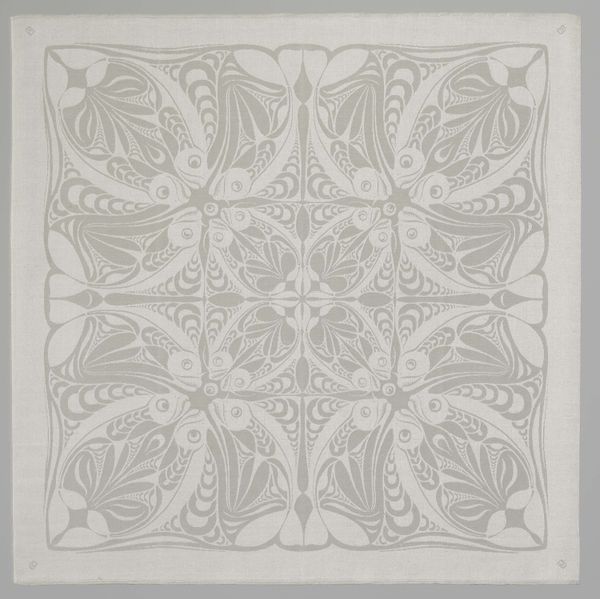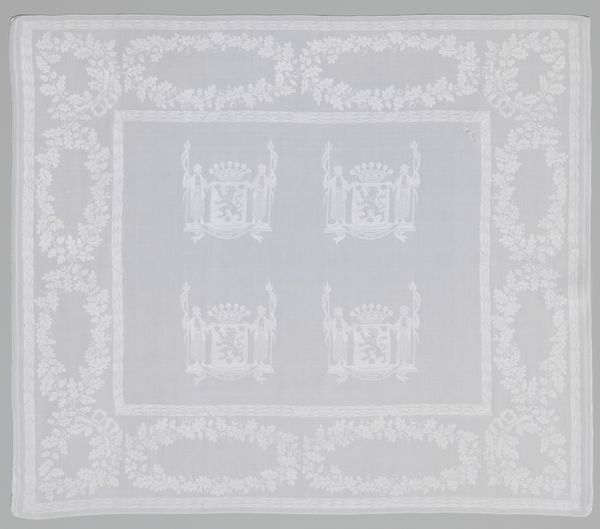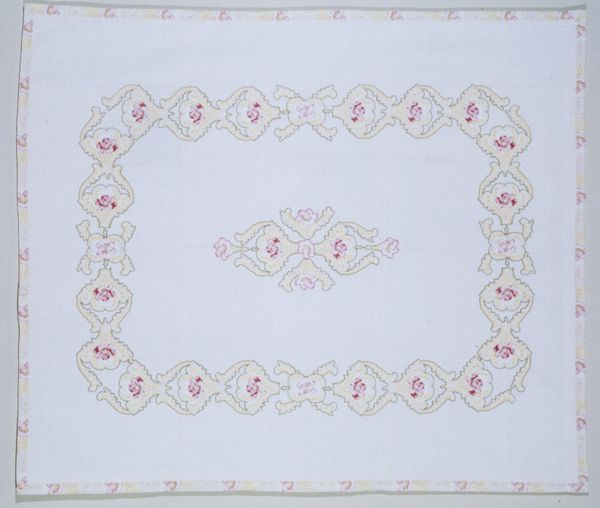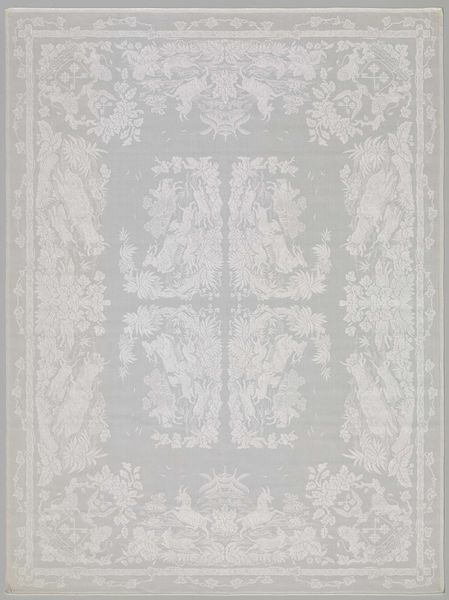
Vingerdoek van linnendamast met marguérite-dessin en in het midden een gekroond wapen met een leeuw 1891 - 1944
0:00
0:00
fibre-art, weaving, textile
#
natural stone pattern
#
fibre-art
#
organic
#
weaving
#
textile
#
geometric pattern
#
repetitive shape and pattern
#
organic pattern
#
fabric design
#
repetition of pattern
#
vertical pattern
#
pattern repetition
#
decorative-art
#
imprinted textile
#
layered pattern
Dimensions: height 40.5 cm, width 38.5 cm
Copyright: Rijks Museum: Open Domain
This linen damask cloth with a marguerite design, featuring a crowned coat of arms with a lion at its center, was created by Cornelis van der Sluys. The immaculate weaving speaks of craft guilds and the rise of manufacturing at the turn of the century in the Netherlands. Damask weaving was a source of national pride, and the cloth’s design combines emblems of both civic and national identity. The heraldic devices suggest a connection to the Dutch monarchy. The floral designs reference a local aesthetic and a sense of national identity through the beauty of local flora. The crisp, formal design suggests a burgeoning sense of Dutch nationalism, perhaps intended for display on a special occasion. To understand it fully, we'd need to research the historical context of Dutch textile production and heraldry in this period. The coat of arms would offer a way to trace the cloth's social and institutional meaning in early 20th century Netherlands.
Comments
No comments
Be the first to comment and join the conversation on the ultimate creative platform.
